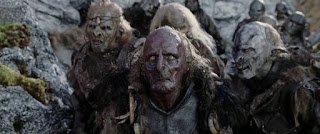How Alexander led by example
Whenever you ask someone to list his favorite generals, it's usually either Napoleon Bonaparte or Alexander the Great at the top. Otherwise they're usually top 5 easy. Alexander was prince of Macedonia, and a student of Aristotle, who conquered most of the known world in his early 20's. In eleven years of conquest he rode through 100,000 miles, and fought 70 battles without losing a single one, from Egypt to India.
Having been a student of one of the most intelligent men in history, he was prone to using logic in the battlefield more often than not, and always planned meticulously, contemplating every alternative he could bring himself to think of, and was thus not only a great warrior but a brilliant strategist. In fact, he was so good at it that he conquered so much with an army of merely 40,000 men, often using mobility and good weaponry, as well as considering the terrain, culture, politics and economics of those places he invaded. In fact, he would often adapt himself to the customs of wherever he found himself and employ indigenous professionals, which would often extend his soft power in many territories.
He believed that he had been awarded immortality, and for this reason, tended to fight on the front lines. In the Mallian Campaign, in which Alexander fought King Porus, the Macedonian army marched to Atari, shortly after having conquered Agalassa. The city was well-protected by walls, but there was a breach through which the Macedonians ran. These were quickly killed by the Indians. When a tower next to it collapsed, Alexander ordered the march, and seeing his men hesitating, climbed the rubble himself to fight the Indians. For a few minutes, Alexander fought the Mallians alone, until his men came to join him in battle.
The next day, the Mallians had retreated to another wall, but as the city seemed empty Peucestas, the shield-bearer who carried the sacred shield of Troy, did not bring many ladders as he thought the city had been conquered. This meant that there were only two ready to be used, and the other side of the wall was guarded with many archers whose arrows were already flying over the wall to their shields. Thus, Alexander did what was only logical to him seeing his men hesitate anew, and climbed up the ladder, holding his shield before him, and with his sword he cleared the paraphet of any defenders. Once he did, he noticed that nobody had followed him and he alone was receiving a barrage of arrows. His shield-bearer and bodyguard hurried up the ladder, while Abreas, a well-paid guardsman, was the only one who actually decided to use the second ladder, and the guards yelled at their king to land safely on their arms. He decided that staying in the middle would be dangerous, and jumping back would accomplish nothing, so the only logical conclusion would be jumping forward, for the ground was higher, and attacking. After all, he would either intimidate the Mallians or die a legendary death. His guard rushed to the ladders to the point that so many of them tried to use them that they broke under the weight.
Thus, Alexander landed on his two feet and immediately put his back to the wall and assumed his stance. A group of Indians went forth to attack and all, including the commander, died. He then proceeded to kill a second commander by shattering his skull from afar with a stone, and whichever Mallian got close to him perished, and they were intimidated as if they were seeing a hero from the mythical Vedas. His three guards who made it first had made it too late, for Abreas was hit with an arrow to the face, and Alexander himself with an arrow to the leg before Peucestas and Leonnatus could make it, and then the king received an arrow to the chest.. Finally, after his men managed to improvise human ladders or otherwise climb the wall, they dropped in front of their leader and blocked him with their bodies. Of course, he would then recover and live for two more years of war. That being said, his men never hesitated again.
What can we learn from this?
Some of the best leaders have to be so by the example they give. Had he not done so, his army wouldn't have learned that their king would've jumped into battle against the world by himself were they behind him or not, so they might as well go with him. His delusion of immortality might have helped fuel the initiative he carried with his advances, but it worked.
Whenever you're in a position to lead, go first when necessary, even if it's a risky move, because that's how you earn not only the respect and loyalty but the end of your followers' hesitation. Besides, if you can't do it yourself, you're probably not in a position to lead in the first place.
Read more about Alexander here:























